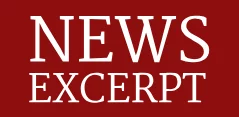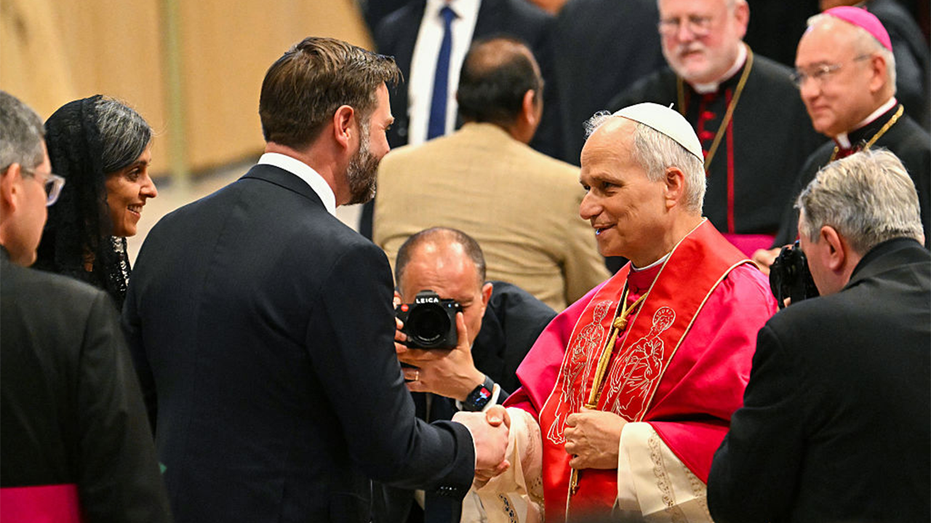The first American pope, Pope Francis, made headlines recently by hosting U.S. Senators J.D. Vance and Marco Rubio in a private audience at the Vatican. This meeting comes as both senators navigate the complex political landscape in the United States and work to address various pressing issues in their respective states and across the nation.
Pope Francis, who has been a prominent figure on the world stage, particularly known for his progressive views on social, economic, and environmental issues, has cultivated a unique relationship with some American political figures. His invitation to Vance and Rubio highlights the Vatican’s interest in engaging with U.S. lawmakers, focusing on the values and challenges that resonate with a diverse audience.
As the first pontiff from the Americas, Pope Francis represents a significant moment in the Catholic Church’s history. His elevation to one of the most influential religious positions in the world has coincided with a heated political climate in the United States, where social issues, the economy, and immigration regularly dominate conversation. For Vance and Rubio, this meeting provides an opportunity to discuss these issues with someone who holds moral authority over a large segment of the population.
J.D. Vance, a Republican senator from Ohio, has been known for his working-class background and his bestselling memoir, “Hillbilly Elegy.” Vance has often engaged in conversations about the struggles faced by blue-collar workers and has focused on bolstering American manufacturing jobs in his state. His visit to the Vatican may allow him to address the church’s role in social justice and poverty alleviation, areas that resonate with many of Pope Francis’s priorities.
On the other hand, Marco Rubio, who has served as the senator from Florida since 2011, has a long history of engaging with issues that connect to Catholic social teaching, particularly concerning family values and immigration reform. Rubio’s meetings with the Pope could foster discussions on how to improve the lives of immigrants, a topic that is particularly pertinent given the challenges many face in the current political climate in the U.S.
The private audience lasted for roughly 40 minutes, during which the senators engaged in heartfelt discussions about the challenges facing their constituents and the broader societal issues shaping their political agenda. The meeting aligns with Pope Francis’s desire to be a bridge between people of faith and the political sphere, encouraging dialogue and understanding amidst a polarized environment.
During their audience with the pope, both Vance and Rubio had the opportunity to address not just Catholic social teachings but also the values that underpin their methods for public service. The pope has continually encouraged politicians to prioritize the common good over political division, a message that resonates deeply with both senators as they navigate their roles in a party that is often criticized for its divisive tendencies.
This meeting also underscores the Vatican’s role in the global discussion regarding moral and ethical leadership. In an age where political rhetoric can often skew toward anger and division, the Pope’s steady, conciliatory approach provides an alternative perspective that emphasizes compassion, unity, and action towards the betterment of society. This is a thread that both senators have been keen to engage with as they craft their own narratives and policy proposals.
The meeting is one in a series of engagements that Pope Francis has had with American politicians. His openness to dialogue with leaders from both sides of the aisle illustrates a commitment to fostering an atmosphere of cooperation. This is especially significant as the United States approaches critical elections and navigates issues that will define its political landscape for years to come.
Moreover, the relationship between the church and political leaders can often serve as a barometer for wider societal trends. The Pope’s involvement with American senators is indicative of a broader trend where moral and religious considerations are increasingly influencing political discussions. The importance of this audience extends beyond mere pleasantries; it highlights the intersection of faith and public policy in addressing societal challenges.
The discussions held during this private audience may well resonate with the American populace, especially with those who are seeking greater empathy and understanding in their leadership. The Pope’s ability to reach across ideological divides may inspire some within the political sphere to adopt a more compassionate approach to governance, particularly for those who feel unheard or marginalized within the current system.
Upon their return to Washington, Vance and Rubio are likely to reflect on how the Pope’s teachings could be translated into actionable policies aimed at fostering social cohesion and addressing pressing issues within their respective states. Engaging with the Pope emphasizes the importance of incorporating moral and ethical considerations into legislative processes, something both senators have the potential to advocate for moving forward.
The impact of this meeting may also inspire constituents from both politicians to engage more deeply with their faith communities. As the relevance of religious teachings in everyday life continues to spark conversations, political leaders who forge connections with faith leaders can foster a culture of collaboration that extends beyond partisanship. This can lead to innovative solutions driven by a shared sense of responsibility towards their communities.
In summary, the private audience between Pope Francis, J.D. Vance, and Marco Rubio is a noteworthy moment that symbolizes the intersection of faith and governance. It underscores the potential for dialogue between religious leaders and political figures, highlighting their shared responsibility in addressing societal challenges. As they move forward, both senators have the opportunity to bring the values expressed during this meeting into their respective legislative agendas, serving as advocates for compassion, unity, and the common good in their states and beyond.
While the implications of this audience are manifold, one of the most important messages that emerged is the significance of empathy in politics. In a climate increasingly defined by division, the Pope’s emphasis on dialogue and cooperation could serve as a guiding principle for politicians who seek to navigate complex issues with an eye toward a more hopeful and unified future.
































